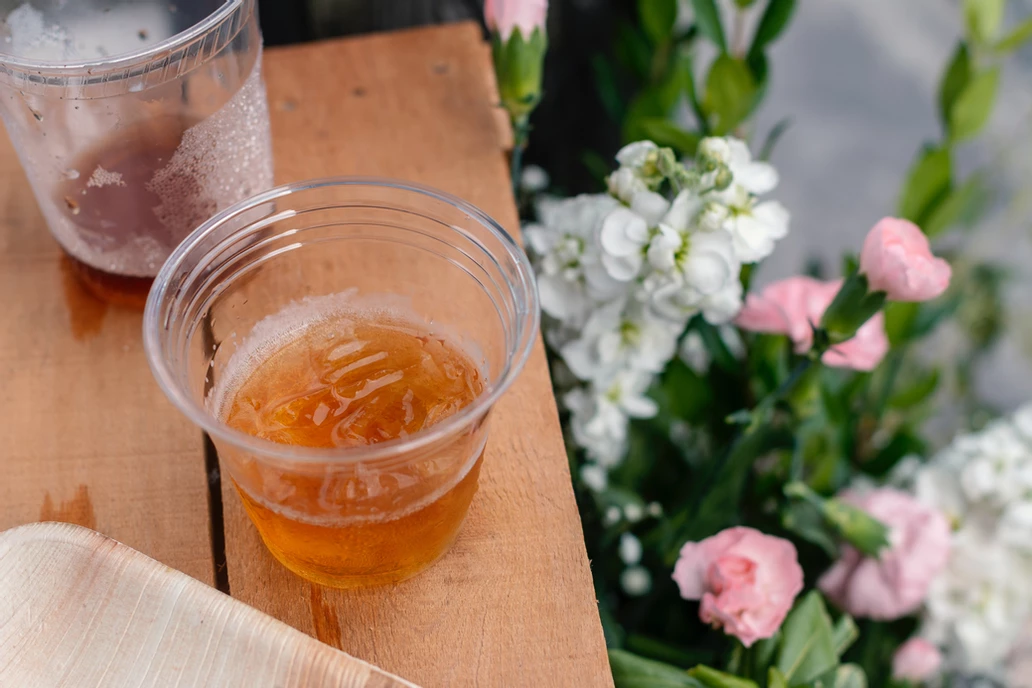It’s nearly time. Time for our great British institutions to start serving a golden elixir again. I am of course talking about the pub, which will once again be able to trade. I for one am excited and incredibly tentative, but maybe not for the reasons you might naturally assume.
Yes, the idea of a second wave is terrifying, but my biggest concern is over the environmental impact. Whilst COVID-19 has had a lot of positive environmental impacts, there has undoubtedly been a significant rise in the use of single use plastic again. With many pubs most likely turning to plastic disposable glasses to avoid contamination, I fear a return to our old ways.
Looking at this from a business perspective and a SWOT analysis, I see this issue not as a threat but as an opportunity. I truly believe that especially for Gen Z’s such as myself there is a desire to still be sustainable. Whilst I understand that there is some method to the madness of returning to plastic cups and bottles, I urge consumers and businesses alike to think longer term and innovate.
The UK drinks market is hugely lucrative and this weekend I’m sure will be a perfect example of this. According to a report from global drinks giant Diageo in 2019, there is a potential for the industry to grow as a whole by £5.2 Billion by the year 2022. This includes non-alcoholic beverages which have shown massive growth partly due to the now 6.1 million adults in Britain that don’t drink alcohol, which is reportedly a 59% YoY growth from 2017.
According to the Diageo report on average 2/3rds of consumers are willing to pay more for drinks products if the company has a clear social and economic impact. This means the opportunity for sustainable purpose-driven drinks companies in the coming years is huge.
I often think being a purpose-driven company is seen as difficult and time-consuming, but this couldn’t be further from the truth. There are so many innovative exciting small businesses using recycled packaging, becoming social enterprises, and even creating drinks out of by-products. All of these changes enable these companies to price their products at a premium, tapping into the aforementioned marketplace.
Becoming more sustainable doesn’t mean you have to change your whole company, but by making simple changes you can change the narrative around your products to something incredibly positive. Not only do you have a great product, but you are also saying you want to help society, not because you have to but because it’s the right thing to do. Consumers are becoming increasingly conscious of what they’re consuming, where it comes from, how it impacts the environment, and whether by buying it they’re contributing to those in a society less fortunate than them. The market for sustainable purpose-driven drinks products is there for the taking!
My worry is that businesses ranging from the producers of our favourite beverages to those that serve them to us will simply discard any thoughts of a purpose strategy and instead ride the wave of British punters desperate for a cold pint. Afterall it may still be a long while before we see the return of parties and festivals, and pubs have a great opportunity to fill that void. There in lye’s the opportunity, why not combine having sustainable products that make people feel good and ultimately make you more money.
The financial crash of 2008 showed businesses that constantly innovate will not only survive but also thrive. I truly believe being a purpose-driven company will become a necessity in the not too distant future. Whilst consumers are willing to pay a premium for sustainable drinks products, I am yet to find a more affordable and accessible drinks brand which is where I believe the growth in this industry lays.
Whilst the Coronavirus Pandemic has been devasting for many businesses big and small, now is the time to innovate, maybe even start over. Becoming a sustainable purpose-driven company shouldn’t be feared, it should be embraced, and I believe will be rewarded as the UK economy begins to heal.
